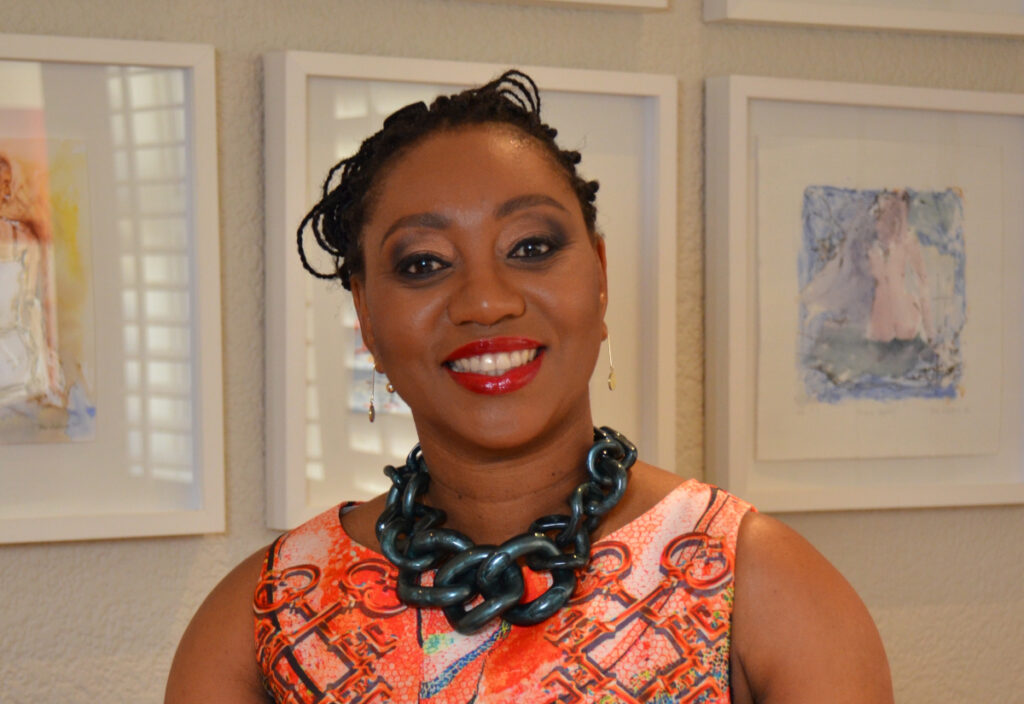Suzanne Morel, Country Manager for Mastercard South Africa
This Mail & Guardian webinar was sponsored by Mastercard. Guest speakers were Suzanne Morel, Country Manager for Mastercard South Africa; Ethel Nyembe, Head: Card and Payments South Africa at Standard Bank Group; and Melissa Kariuki, Associate Product Marketing Manager at Google South Africa. It was moderated by Michael Avery, Journalist and Broadcaster.
As the wrecking-ball of the pandemic has swung through the small business sector, it has brought into sharp focus the importance of this component in South Africa’s wider economy.
“The SME segment is naturally among one of the hardest-hit business sectors during a crisis. SMEs are part of our community and are fundamentally important when it comes to underpinning our economy,” said Suzanne Morel. “They contribute around 30% to our GDP and employ an estimated 90% of SA’s workforce.”
But just as we have been reminded of the importance of growing and supporting small businesses, another critical truth has been brought to the fore by the pandemic: the need for these SMEs to trade online.
 Ethel Nyembe, Head: Card and Payments South Africa at Standard Bank Group
Ethel Nyembe, Head: Card and Payments South Africa at Standard Bank GroupEthel Nyembe informed webinar listeners that data collected during the Covid-19 pandemic told a powerful story. There was an 84% increase in the value of e-commerce spend at grocery stores, while general merchandise stores such as Makro and Takealot saw a mind-blowing increase of almost 460% in the value of e-commerce spending, Nyembe said.
In the next three years, e-commerce will grow by 19%, which is almost three times as fast as in-store sales, said Nyembe. “Not only is e-commerce being leveraged by millennials, who have always been on Netflix, television binging, or playing games online … but really and truly, it’s going to be normal. We will buy our essentials, which will be delivered at the gate.”
Responses to a Mastercard survey supported this, said Morel: “Seventy-one percent of people said they would continue to shop online because they’ve now developed that habit.”
The message is simple: “If you’re an SME and you don’t go online, you’re missing out on three times the potential e-commerce growth,” said Nyembe.
But the thought of building on online presence, especially one that integrates marketing and payment solutions, is often overwhelming to small business owners. As Morel pointed out: “In addition to wearing the many hats inherent to small business ownership, SMEs this year have also had to navigate mandatory lockdowns, restricted supply chains, and the changing habits of an evolving consumer.”
In a nod to this combination of factors, Mastercard has partnered with Standard Bank and Google to provide what they describe as a free “one-stop” solution for small businesses to pivot online.
 Melissa Kariuki, Associate Product Marketing Manager at Google South Africa
Melissa Kariuki, Associate Product Marketing Manager at Google South Africa The package, called SimplyBlu, is powered by Mastercard and allows small businesses to access — within a day from sign-up — a free, simple, all-in-one e-commerce solution, said Nyembe.
“There are no coding or development skills required; it comes all ready for deployment with a payment and drop product functionality — a payment gateway that allows businesses to easily accept payments from their customers, and provides e-invoicing,” she said.
In addition, users can create their own Google Ad campaigns from the platform. They are given R500 worth of Google Ads upon sign-up, and Google undertakes the responsibility to manage the first month of the campaign for free.
Melissa Kariuki told listeners that businesses can use Smart Campaigns, a version of Google Ads that was specifically designed with small businesses in mind. “You can create and execute an Ad campaign in less than 15 minutes,” she said.
She said that SME owners can craft their ad by thinking about “who are the people we are trying to target with this ad? What would appeal to them? What are they looking for?” This will help “make sure your ad is catchy, to the point, and highlights the value-add of your business,” she said.
Then, SME owners will need to list about 20 keywords that will help their ad show up when consumers search for a related product. On the back end, Google tries to match what consumers are searching for with the most relevant keywords, said Kariuki.
The starting point is to make sure that you have a Business Profile on Google, that is, a free listing containing basic information about your business that is picked up when customers do an online search.
This is a key part of business development. The Mastercard survey found that 63% of respondents became aware of new businesses through their Google searches over the course of this year, said Morel.
“Once you are online, the next thing is to make sure that you are showing up consistently and interacting with your customers,” said Kariuki. “So, make sure your hours are always updated, you are thanking customers for good reviews, you are replying to negative reviews, and when customers ask questions, you’re answering them. Customers have high expectations, so it’s really important that you’re interacting with them and showing up consistently,” she said.
 Michael Avery, , Financial journalist and presenter for Business Day TV
Michael Avery, , Financial journalist and presenter for Business Day TVKariuki said SME owners can then understand what is driving their current growth by looking at their online analytics. “You’re able to see how many people see your ad and how many people are clicking on your ad. You can use this to replicate what’s working and double down on that,” she explained.
The Mastercard, Standard Bank and Google collaboration came at the right time. The Mastercard study further revealed that a staggering 68% of consumers had started to shop more online since the onset of the pandemic. To this end, Mastercard provides small businesses with the technology to make the transition to the digital economy seamless and safe.
Business broadcaster and journalist Michael Avery said the tri-company collaboration signalled the possibility of something “very exciting.” The ability for SMEs to easily come online and leverage their offerings to a globe of potential customers could “become hugely transformative in a country like South Africa”.
SMEs can sign up here for the offer.
To view the webinar, click on this link